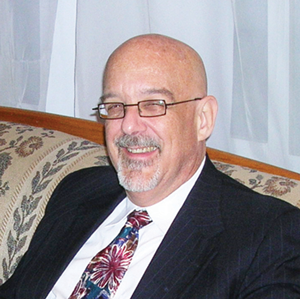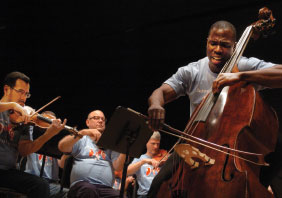 by Christopher Durham, AFM Symphonic Services Division Chief Field Negotiator
by Christopher Durham, AFM Symphonic Services Division Chief Field Negotiator
Preparation for negotiating your collective bargaining agreement no longer begins six months in advance of your agreement’s expiration, nor does it end with tentative agreement on its successor. Much of this preparation occurs throughout the term of the agreement. Using the time between rounds of active bargaining to choose effective representatives, build important relationships, gather information, and exploit resources is now an essential part of preparation for bargaining.
Electing an effective orchestra and/or negotiating committee is an important function of the bargaining unit. When nominating and voting on committee members, it is important to be informed about the candidates and choose appropriately. The committee should include institutional memory and reflect a cross section of the orchestra with regard to factions and seniority. It is increasingly important that we elect people who have the desire, time, willingness, and ability to participate. We must avoid electing one-agenda candidates.
If there are members who have a special interest, but not the time or desire to become a member of the committee, they may be willing and can be assigned to do special projects or subcommittee work. Such work could include administering strike fund payments, maintaining social media tools, researching specific topics for the committee, coordinating social activities, and attending labor functions. Musicians willing to help in these ways are huge assets to a busy committee.
There are many important relationships that must be maintained, not only when we are in crisis and need assistance. Clearly, a good relationship with management and members of the board is better than a bad relationship. We must be active in making sure this is the case. Communication with our own orchestra members is critical. An e-newsletter and periodic social functions bring everyone together outside the workplace. Regular communication and involvement with our local union officers are also vital. We must attend meetings of the union membership and executive board and make reports.
Musicians can form a coalition with other unions in our workplaces. These may include stagehands, carpenters, electricians, “front of house” workers, and scenic designers. Relationships with other trade unions can occur in a variety of ways, including attending local and state AFL-CIO meetings and sharing our workplace issues. This puts a face on our union and shows their delegates that we have concern for other workers and are not turning to them only when we need their support.
Social media gives orchestra bargaining units many tools to deliver our message and educate our followers about who we are and what we do. Orchestra musicians should consider using Facebook, Twitter, a website, e-newsletters, or other means to advance their cause and build these important relationships. Having people dedicated to setting up and maintaining these tools will assure that the content is fresh and effective.
As we administer the current agreement we may agree to variances and encounter grievances. Such events should be memorialized in detail so that we have a record to review as we formulate our next proposal. Information we collect during the term of the agreement will help guide us as we bargain the next agreement.
Many agreements permit musician participation on board subcommittees. A key committee is the finance committee. Musician representatives to employer boards and committees should make regular reports and provide information gathered during these meetings to the local officers and orchestra/negotiating committee members. At times we may encounter management’s claim that the financial information discussed or provided is confidential. This should not mean that we, as bargaining unit representatives, are prohibited from sharing with our leadership. This information is relevant to bargaining. Bargaining committees should never first discover the organization’s poor financial health at the bargaining table, especially if the musicians have a representative on the board’s finance committee.
Many orchestras participate in the AFM Strike Fund or have “war chests.” We must set an alert to pay the strike fund properly and on time, with required information. War chests are usually authorized payroll deductions that have been voted upon and approved by bargaining unit members at a meeting. The motion to establish a war chest must stipulate how the money is to be recorded and utilized. These funds are best held in an account of the local, which will take responsibility for required Department of Labor and Internal Revenue Service reporting.
The SSD is prepared and always willing to discuss further ideas and needs you have as you negotiate, administer, and enforce your agreement.








